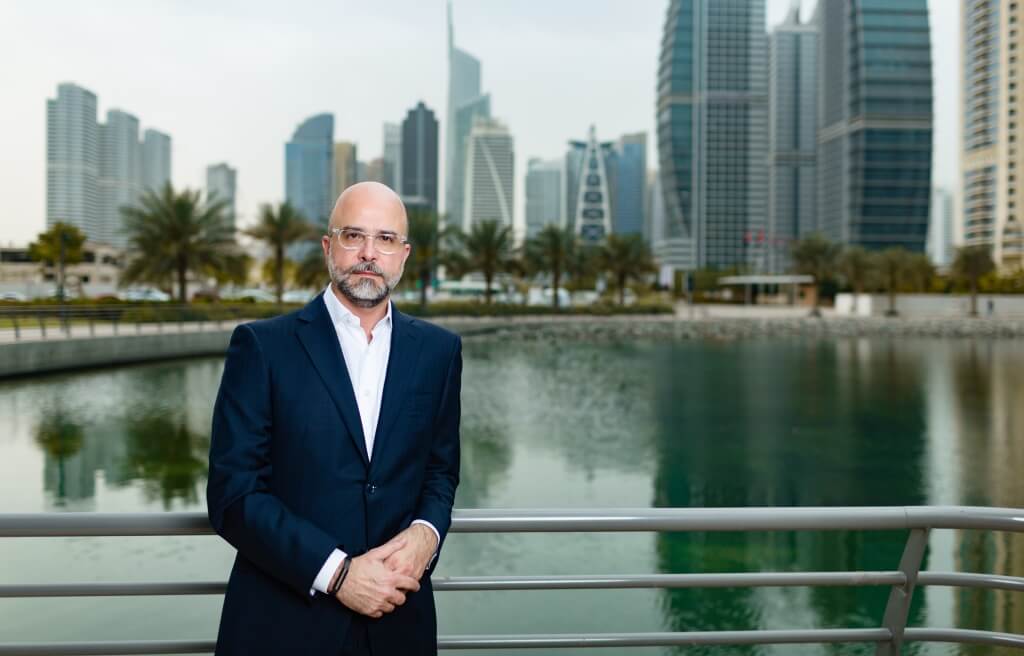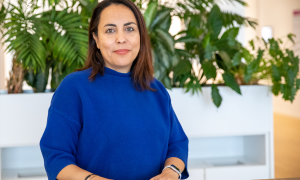In 1965 the sandwich making industry was revolutionised forever by two men in Connecticut. With the simple hope of making enough money to pay off tuition fees, Fred DeLuca and Peter Buck started Subway, arguably the world’s favourite sandwich shop. Fast forward 50 years and Subway is a fast food giant with 44,000 branches globally. From this empire, non-profit making organisation IPC was born, providing a unique combination of volume purchasing and supply chain operations owned by Subway Franchisees.
There are now five branches of IPC managing the global supply chain, including IPC (MEA), charged with looking after the Middle East and Africa. Steering this arm of the organisation and its close-knit team is CEO Ramzi Baroudy, who quickly identified the potential of IPC (MEA) and its scope for future success. Welcomed to the business in 2015, Ramzi brought a wealth of knowledge and insight from the Fast Moving Consumer Goods (FMCG) industry, and was keen to translate his experience into a supply chain role.
Delivering the Goods
Having already worked with companies such as PepsiCo and Nestle, Ramzi Baroudy understands only too well the different ‘personalities’ of functions within a manufacturing environment, from the technological engineering side of the business to the supply chain. Additionally, his former dealings with marketing and sales teams has brought an added dimension to his expertise, and the unique skill of being able to adopt different perspectives within the business.
Determined to invigorate thinking at the company, Ramzi Baroudy encouraged IPC (MEA) to become more than a purchasing, distribution and logistics company and to move into other services, inducing an architectural restructuring of the organisation. “This started in the HR department,” says Ramzi. “We didn’t really have much in terms of HR policies and structure, salary bands or even clear guidelines of roles and responsibilities.” Across a timeframe of 18 to 24 months Ramzi ordered an internal evaluation, which lead to a clear structuring of the roles within the company.
This also concerned concepts such as incentivising individuals and how to introduce new employees into the system. The revamp of his HR department saw his small team of workers thrive, with honesty and effective communication at the core of IPC’S (MEA) ethos. Ramzi Baroudy believes this kind of openness between the workforce instils a strong element of trust between himself and his employees. Ramzi says: “It diminishes the sense of hierarchy between the staff. Not only are they able to talk openly to their managers, but they feel like they are listened to.”
Ramzi Baroudy takes pride both in the relationship between his employees and the relationship he enjoys with his suppliers. “The key to a successful relationship with suppliers is consistency,” he says. “Consistency with our message, consistency with the disciplines we follow and consistency concerning the principles of the company.” This is enforced through carefully drawn up contracts that set out the ground rules of the relationship with transparency and clarity. Suppliers such as Indevco Group take a similarly forthright approach. Founder Georges N. Frem says: “What is good for the community is good for the company. What is good for the company, we will strive to do excellently and in a way that enriches the lives of our people.”
Along with this strong ethos of consistency, Ramzi nurtures a personal relationship between IPC (MEA) and its suppliers. “We want to bring in partnerships that aren’t simply transactional relationships,” he says. “We give our suppliers an opportunity to operate fairly and prove themselves to ensure we are getting the best quality from them.”
At IPC (MEA) quality control is of the utmost importance, which is why the company works with a select group of trusted suppliers such as internationally renowned Del Monte and award-winning Dawn Farms. “When it comes to fruits and vegetables, there are no unique solutions, but thousands of options to choose from,” says Del Monte MENA region’s Marketing Director Héloise Buzet. “Del Monte is here to work hand in hand with clients; we adapt to your requirements to match your needs. You choose, we supply.”
Family-owned Dawn Farms is the largest dedicated supplier of cooked and fermented meat ingredients outside of the US. The company supplies world-leading food brands across 40 markets, including the EU, the Middle East, Africa and Asia. All products are produced in state-of-the art facilities, which include two production sites in Ireland, both of which have been awarded BRC AA status. At IPC (MEA), the hope for the future is expansion of the businesses, an aim that is not without challenges. Ramzi says: “To cover the cost of expansion, as a non-profit organisation, it will mean establishing multiple funds through the contract linked rebate system that ensures that the organization remains self-funded and would not impact franchisees. We also have to take into consideration the expanding workforce, the opening of additional offices and better working conditions. The main challenge is to balance these two factors. We’ve needed to bring on more senior members to help with the internal functioning of the organisation, and I’ve needed more support to help structure the business.”
Shifting Trends
Another challenge for the business has been the dramatic changes in the QSR dynamic, due to deteriorating economic conditions in the GCC region over the past couple of years. This has seen competing fast food giants like McDonalds and KFC focus more and more on delivering value and ensuring their market share is protected, which naturally means taking cost out of the supply chain. Another competing factor is the rise of online food services, which allow five-star quality restaurant food to be delivered in the comfort of one’s own home. All in all, the variety of competition has grown exponentially, so today’s businesses can no longer rely on this channel as easy money.
In spite of these hurdles, Ramzi Baroudy predicts a bright future. Ultimately, he hopes to create a more localised IPC network that caters to the franchisees’ needs across all the strategic markets of the region. This will be delivered whilst smartly managing resources to provide support to clusters of sub-scale markets in order to provide a harmonized service throughout the Middle East.
Download the full interview here.





